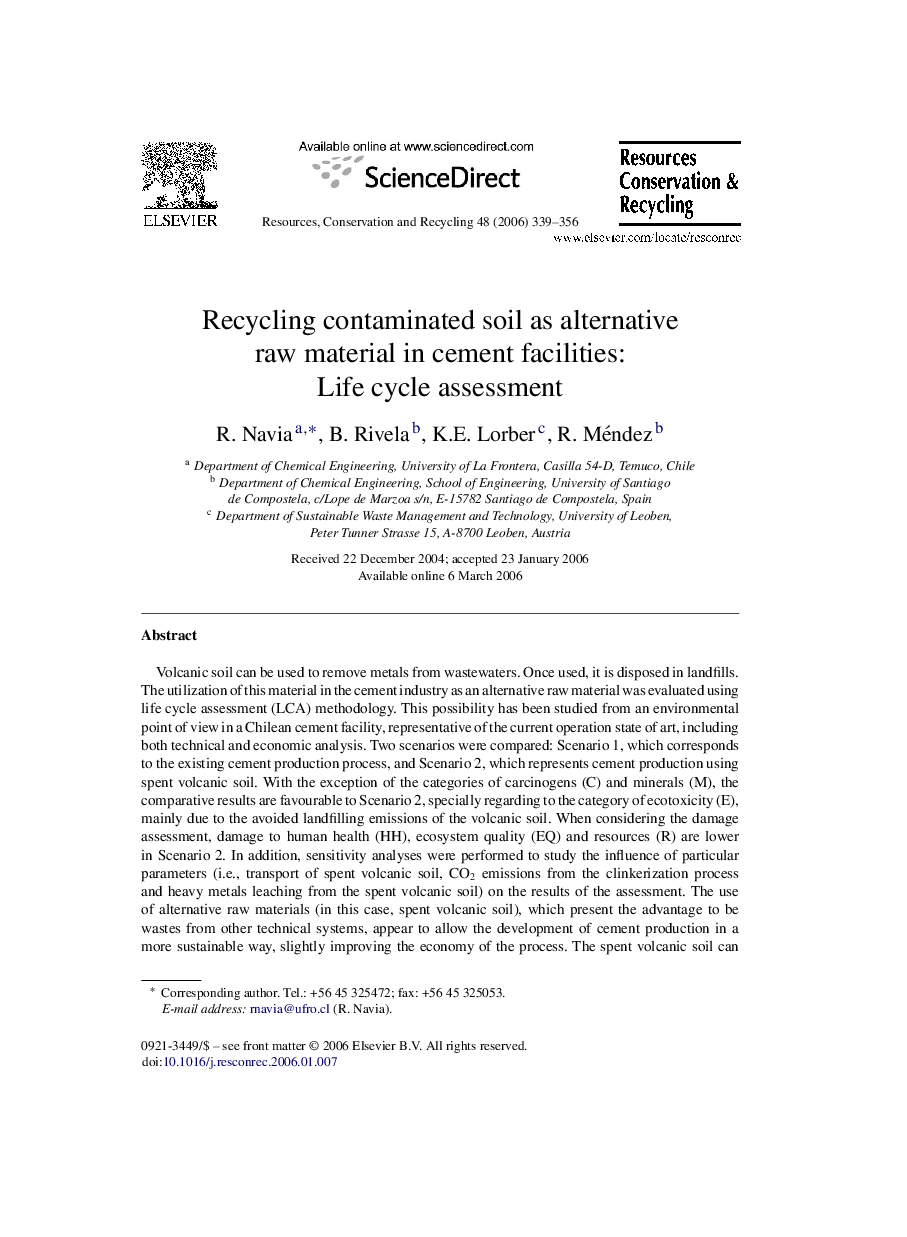| Article ID | Journal | Published Year | Pages | File Type |
|---|---|---|---|---|
| 1064164 | Resources, Conservation and Recycling | 2006 | 18 Pages |
Volcanic soil can be used to remove metals from wastewaters. Once used, it is disposed in landfills. The utilization of this material in the cement industry as an alternative raw material was evaluated using life cycle assessment (LCA) methodology. This possibility has been studied from an environmental point of view in a Chilean cement facility, representative of the current operation state of art, including both technical and economic analysis. Two scenarios were compared: Scenario 1, which corresponds to the existing cement production process, and Scenario 2, which represents cement production using spent volcanic soil. With the exception of the categories of carcinogens (C) and minerals (M), the comparative results are favourable to Scenario 2, specially regarding to the category of ecotoxicity (E), mainly due to the avoided landfilling emissions of the volcanic soil. When considering the damage assessment, damage to human health (HH), ecosystem quality (EQ) and resources (R) are lower in Scenario 2. In addition, sensitivity analyses were performed to study the influence of particular parameters (i.e., transport of spent volcanic soil, CO2 emissions from the clinkerization process and heavy metals leaching from the spent volcanic soil) on the results of the assessment. The use of alternative raw materials (in this case, spent volcanic soil), which present the advantage to be wastes from other technical systems, appear to allow the development of cement production in a more sustainable way, slightly improving the economy of the process. The spent volcanic soil can be treated with zero cost for the wastewater treatment plant with savings of 0.23€ for each tonne of clinker production. Establishing a sound management way for the spent volcanic soil could foment its possible use as mineral adsorbent in industrial wastewater treatment facilities.
